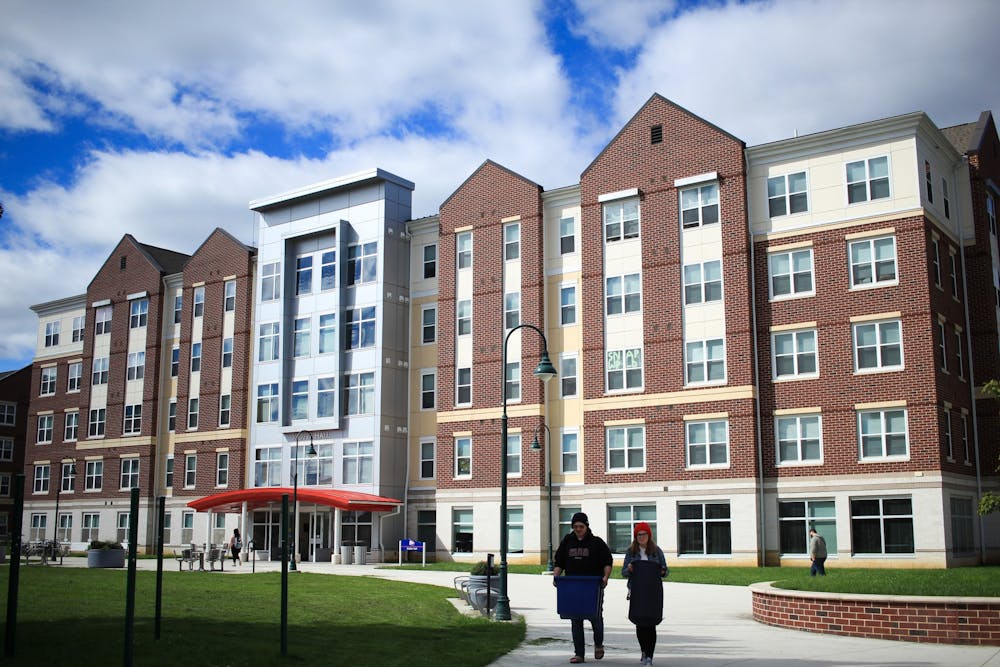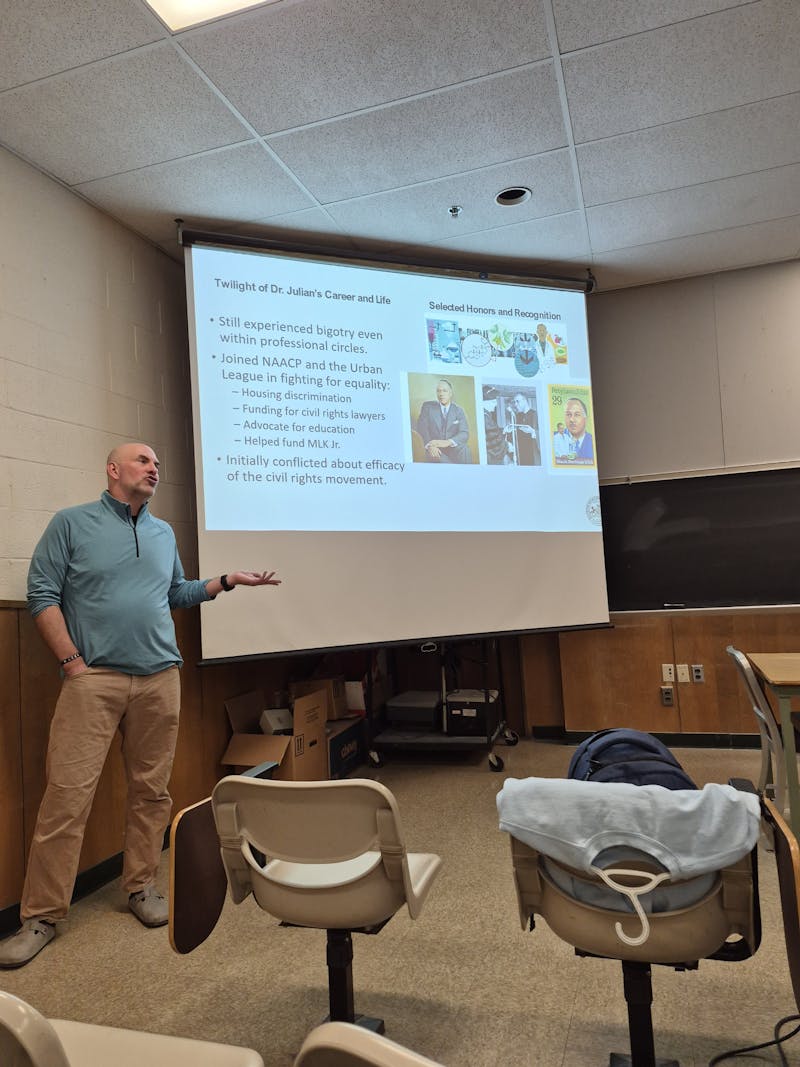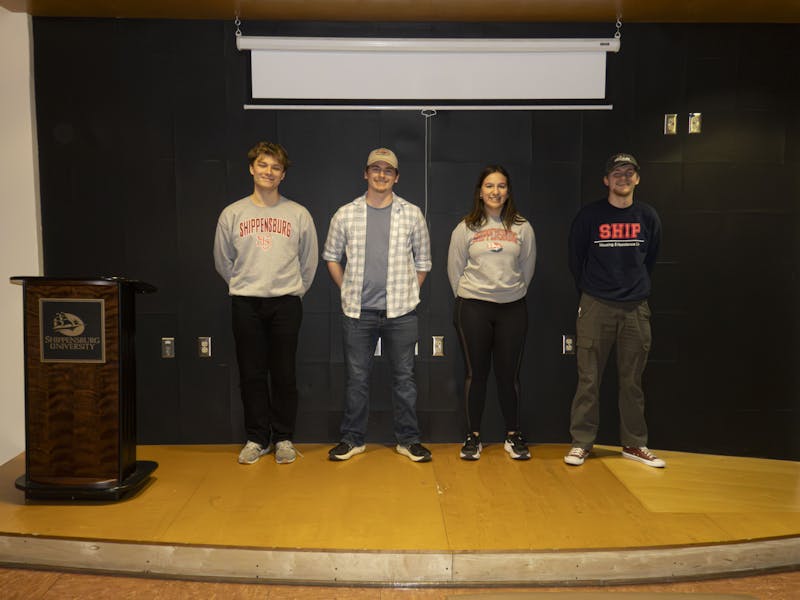The COVID-19 coronavirus has affected every level of the Shippensburg University campus community. The lives of resident assistants, known as RAs, have not escaped this change.
RAs are full-time students who commit to living and working in a residence hall. They are responsible for the residents on their floor and contributing to a healthy social community. On top of this they also have to balance their academic careers, personal and social lives. With the coronavirus forcing people to live and work in new ways, RAs now face many challenges that go unseen by others.
Officials have posted signs and stickers across campus to remind students to wear a mask and practice social distancing. However, not all campus community members follow these guidelines. Individuals sometimes choose not to follow the guidelines, and someone has to take responsibility to confront them. The coronavirus has added this duty to the busy lives of RAs.
Tyler Olsen, a sophomore and first-time RA, said that these confrontations can be tough.
“We’re just trying to do our jobs and keep everyone safe,” Olsen said. “We’re not coming after them when we’re asking them to put on their mask.”
RAs also have to be conscious of their own actions to make sure they are distancing as many are watching them, said junior and returning RA Ebony Jeter.
Often these confrontations go well Olsen said. Many are friendly reminders to wear masks above the nose or that students cannot have visitors in the dorms. The most backlash students give is over masks.
“We get a lot of attitude from students sometimes, but I can understand it’s a frustrating situation,” Olsen said.
In addition to these new duties, RAs also must stay on top of their traditional roles. Checking in with the residents on their floor is expected, but this year they must do it while social distancing.
“It’s definitely a lot tougher because I am extremely extroverted,” said Olsen. While he still knocks on doors just to check in, he and residents have to find a private place to talk or meet on Zoom instead.
Even something like a casual conversation needs to be approached differently. Instead of being able to stop by a room or chat in the hallway when they run into a resident, they have to go to a lounge to maintain distance, Jeter said.
The mental health of residents and RAs is another aspect of resident life that the coronavirus affected.
According to the Resident Life webpage they are supposed to “Encourage residents to discuss their concerns and counsels and advises students within their limits.”
This also includes staying aware of serious physical or psychological problems that students may have the webpage said. Olsen said reaching out to students and ensuring students know they can reach out to RAs is even more important this year because it is a situation that they have not been in before. RAs cannot interact with their residents as easily as they have in the past.
“You don’t realize it but a lot of students are not OK and they are afraid to admit it,” Olsen said.
RAs are normally required to come back to campus a week before the semester for training. However, this year RAs came back two weeks early to master all the new implemented policies and procedures for the coronavirus.
While RA training did include mental health, Jeter feels they should have spent more time on it. Jeter said RAs completed an eight-hour mental-health crisis traning last winter. With many first year RAs in her hall, Jeter said she thinks it would benefit many of them to have this additional training given the conditions this semester.
While making sure their residents are managing their mental health with academics and personal lives is important, but RAs also have to balance those things.
Jeter said mental health is the hardest part about being an RA during the pandemic. While most professors are understanding, some are operating as normal which makes it hard to balance, she said. Making sure her residents are OK and regularly checking in can be a lot to take in and process.
Olsen agreed, “It’s definitely overwhelming, I know a lot of returning RAs that are just as overwhelmed as the new RAs.”
The coronavirus has created an environment where people are constantly learning new ways of doing things and having to adapt weekly. Typically, resident directors, also known as RDs, reach out to their RAs to check in and make sure they are handling their responsibilities. While this communication has always been offered, RDs have made sure RAs know that open communication is available if and when they need it, according to Jeter.
Jeter’s RD has showed support and understanding this semester and made sure RAs do not feel left behind. She also said RDs have made efforts to assure coverage if an RA needs time off to decompress. In addition to RD support, Jeter said RAs have been taking advantage of other resources on campus like the counseling center or the spiritual center.
No one has escaped the effects of the coronavirus. Sometimes these effects are more visible than others, however everyone has had to adapt to a different routine for the fall semester.
“Be compassionate, be courteous because you don’t know what people are going through, I might be your RA but I’m still a person too,” Jeter said.





The Slate welcomes thoughtful discussion on all of our stories, but please keep comments civil and on-topic. Read our full guidelines here.